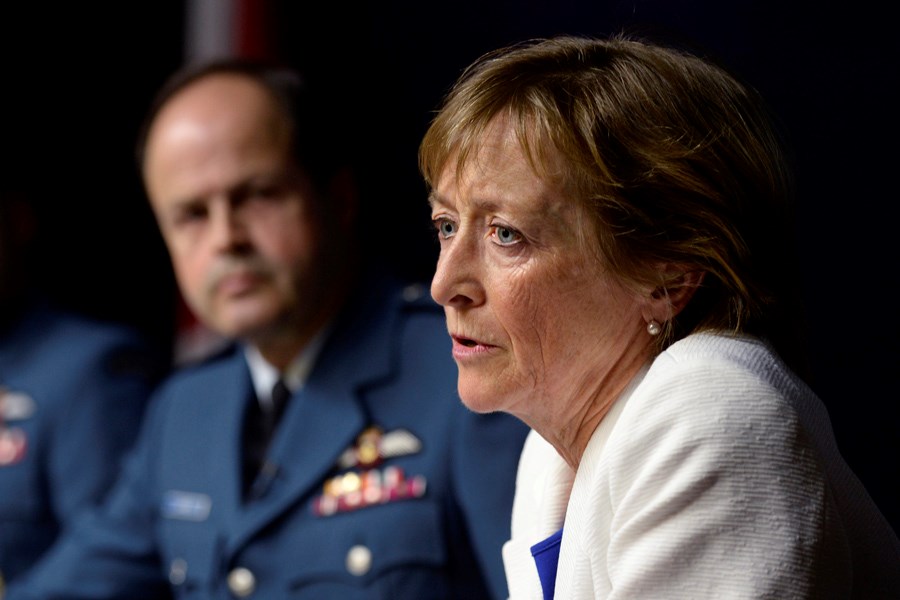OTTAWA - Never mind the prospect of enemies on the battlefield - Canadian Forces soldiers face a hostile environment even among their own ranks, says a long-awaited review into sexual misconduct in the country's military.
Rape jokes, sexual innuendo and language belittling women are among the contributors to a highly sexualized culture - a "culture of misogyny" - in the Canadian Armed Forces that is hostile to women and the lesbian, gay, transgendered, bisexual and queer community, and that is conducive to more serious incidents of sexual harassment and assault, said the report, led by Marie Deschamps, a former Supreme Court justice.
"The (external review) found that there is an undeniable problem of sexual harassment and sexual assault in the CAF, which requires direct and sustained action," the report says.
"Dismissive responses such as, 'This is just the way of the military' are no longer appropriate."
The military launched the review last year after media reports into what appeared to be a major discrepancy in official records of sexual harassment and assault cases and what was actually happening inside the Forces.
Deschamps' review found that soldiers are exposed to elements of sexual misconduct - the use of words demeaning to women as basic units of measurement, for instance - from the moment they join the military.
The attitude is so pervasive that members just become desensitized to it as they move up the ranks, the report said, with officers tending to excuse incidents on the grounds that the military is just a reflection of civilian society.
"As a result of these attitudes, there is a broadly held perception in the lower ranks that those in the chain of command either condone inappropriate sexual conduct or are willing to turn a blind-eye to such incidents," the report says.
The report contains 10 recommendations, including that the military acknowledge that inappropriate sexual conduct is a problem and put a strategy in place to change the military's culture.
At the same time as the report was released, the military released its response to it, calling it an "action plan on inappropriate sexual behaviour" that includes a strategic response team dealing with the problem.
The response says the military must do a better job of understanding the issue of sexual misconduct, responding to reports of it, supporting victims and preventing the behaviour in the first place.
To that end, they accepted the first two of Deschamps' recommendations.
But as for the other eight recommendations, most of which are linked to the need for an independent agency to handle sexual assault and harassment, the Forces said they accept them only in principle.
The military said further study is needed to understand the scope of the problem and what best practices are in order to resolve it.
"The CAF will improve its culture of dignity and respect for all the men and women of the CAF, ensuring that the highest professional standards are maintained," the response said.
"This is not only a moral imperative, it is also an operational one, for the CAF's continued success in operations across Canada and around the world depends on the unwavering trust and cohesion amongst all our members, regardless of gender, ethnicity, orientation or background."



